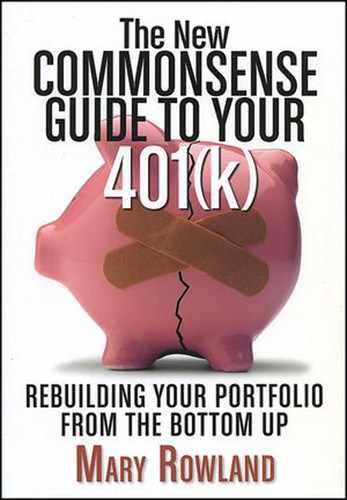I'VE ALWAYS considered myself a big risk taker. When I was a kid, I jumped out of second-story windows and drove in stock-car races. In 1996, we bought a home in the country, even though we hadn't yet closed on our apartment in New York. Our family of four lived in a rented cabin with no heat for six weeks while I went on a book tour. Give me a risk and I'll take it. Some people call it thrill seeking.
When the stock market headed higher, higher, higher, in 1987, I had to get in on it, right? But I'd never bought stock before. What should I choose? I attended a press luncheon at Drexel Burnham Lambert (remember the junk-bond king?), and an analyst told us there was plenty of room for more growth in American Express. I bought it—right before the market crash in October 1987.
How many mistakes can we count there?
I invested for emotional reasons, afraid that I might lose out on getting rich, like everyone else.
I didn't know anything about specific companies, but I thought buying an individual stock was more daring, and more rewarding, than buying a mutual fund.
I bought on a "tip."
Perhaps worst of all, after the crash, I refused to sell American Express until it got back to what I paid for it. This is a timid saver mentality, not an investor mentality. As an investor, you should look at what the stock is worth and whether you believe it will get there. I didn't know how to do that.
By the late 1990s, I was writing a weekly online investment column for MSN Money, and I knew quite a bit more about investing. I bought the hot tech stocks and doubled my money. In early 2000, I thought the market was toppy, and I sold off the tech stuff. This was my best call. On March 10, 2000, the Nasdaq hit its high of 5,048 and then tumbled to just over 1,100 on October 9, 2002. I was mostly in cash. But I congratulated myself far too much for having some secret sixth sense that steered me in the right direction.
So now we move ahead to 2008. I have my son Tom's college account invested aggressively in health care and international. My own account is a bit more conservative with some value funds like Dodge & Cox Stock and Longleaf Partners, both of which I've held for a long time. Both took a terrible drubbing in 2008 and 2009.
When the market began to retreat in September 2008 and then to go into free fall in October, I felt concerned about Tom's college account. But I'd finally learned my lesson, finally discovered that buy and hold was the way to go.
Yes, I was buy and hold. I am self-employed, so I have an IRA rather than the 401(k) plan that many employees have. I'd last looked at the account, which I keep at Charles Schwab, when it contained around $450,000. The best way for me to discipline myself is not to look, and I decided not to look again until the market stopped falling and started climbing. But here I am writing another book on 401(k) plans and investing, and I can't even face my own losses in the worst bear market we've seen in seventy years? That's bad.
So, on the morning of March 6, 2009, the day after the market dropped another 300 points to 6,594.44, I called up my online account at Charles Schwab.
The result? My account balance was $245,335. I'd lost $50,500 in what I consider my "core holding," the Standard & Poor's Index of 500 Stocks (SPY), which trades as an exchange-traded fund (ETF). I've used SPY as a portfolio core because it represents the overall market. I figure if the market goes up, SPY will ride along with it. Same goes for down. I'd started buying SPY in 1998 when it traded at $98 a share, buying in when it dipped. Now I saw that the fifty-two-week range was 68.17 to 144.30. So I bought 100 shares of SPY at 68.80.
Did I do the right thing? I don't know. I guess I did the hopeful thing, showing my belief that the entire world economy would not collapse, that all the stocks in the S&P 500 would not be reduced to 0. Most important though, I think I did a rational thing. I didn't jump on or off the bandwagon. I didn't sell off all my stocks. I didn't throw what cash I had left into the market. I bought what I thought was the most solid investment in a time of market crisis.
